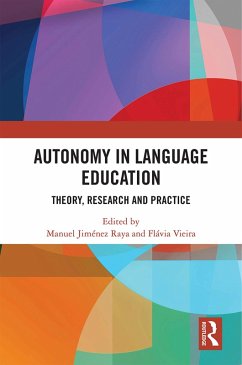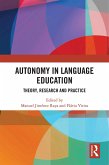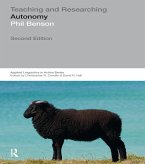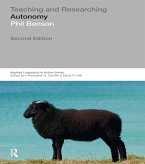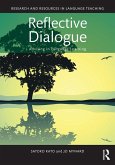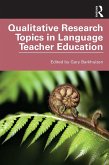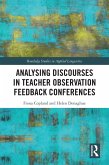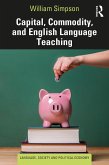Manuel Jimenez Raya, Flavia Vieira
Autonomy in Language Education (eBook, PDF)
Theory, Research and Practice
41,95 €
41,95 €
inkl. MwSt.
Sofort per Download lieferbar

21 °P sammeln
41,95 €
Als Download kaufen

41,95 €
inkl. MwSt.
Sofort per Download lieferbar

21 °P sammeln
Jetzt verschenken
Alle Infos zum eBook verschenken
41,95 €
inkl. MwSt.
Sofort per Download lieferbar
Alle Infos zum eBook verschenken

21 °P sammeln
Manuel Jimenez Raya, Flavia Vieira
Autonomy in Language Education (eBook, PDF)
Theory, Research and Practice
- Format: PDF
- Merkliste
- Auf die Merkliste
- Bewerten Bewerten
- Teilen
- Produkt teilen
- Produkterinnerung
- Produkterinnerung

Bitte loggen Sie sich zunächst in Ihr Kundenkonto ein oder registrieren Sie sich bei
bücher.de, um das eBook-Abo tolino select nutzen zu können.
Hier können Sie sich einloggen
Hier können Sie sich einloggen
Sie sind bereits eingeloggt. Klicken Sie auf 2. tolino select Abo, um fortzufahren.

Bitte loggen Sie sich zunächst in Ihr Kundenkonto ein oder registrieren Sie sich bei bücher.de, um das eBook-Abo tolino select nutzen zu können.
Autonomy in Language Education offers a holistic overview of and novel contribution to a complex and multifaceted, yet under-studied, field of inquiry that is transforming language pedagogy.
- Geräte: PC
- ohne Kopierschutz
- eBook Hilfe
- Größe: 4.39MB
Andere Kunden interessierten sich auch für
![Autonomy in Language Education (eBook, ePUB) Autonomy in Language Education (eBook, ePUB)]() Manuel Jimenez RayaAutonomy in Language Education (eBook, ePUB)41,95 €
Manuel Jimenez RayaAutonomy in Language Education (eBook, ePUB)41,95 €![Teaching and Researching: Autonomy in Language Learning (eBook, PDF) Teaching and Researching: Autonomy in Language Learning (eBook, PDF)]() Phil BensonTeaching and Researching: Autonomy in Language Learning (eBook, PDF)38,95 €
Phil BensonTeaching and Researching: Autonomy in Language Learning (eBook, PDF)38,95 €![Teaching and Researching: Autonomy in Language Learning (eBook, ePUB) Teaching and Researching: Autonomy in Language Learning (eBook, ePUB)]() Phil BensonTeaching and Researching: Autonomy in Language Learning (eBook, ePUB)38,95 €
Phil BensonTeaching and Researching: Autonomy in Language Learning (eBook, ePUB)38,95 €![Reflective Dialogue (eBook, PDF) Reflective Dialogue (eBook, PDF)]() Satoko KatoReflective Dialogue (eBook, PDF)49,95 €
Satoko KatoReflective Dialogue (eBook, PDF)49,95 €![Qualitative Research Topics in Language Teacher Education (eBook, PDF) Qualitative Research Topics in Language Teacher Education (eBook, PDF)]() Qualitative Research Topics in Language Teacher Education (eBook, PDF)41,95 €
Qualitative Research Topics in Language Teacher Education (eBook, PDF)41,95 €![Analysing Discourses in Teacher Observation Feedback Conferences (eBook, PDF) Analysing Discourses in Teacher Observation Feedback Conferences (eBook, PDF)]() Fiona CoplandAnalysing Discourses in Teacher Observation Feedback Conferences (eBook, PDF)39,95 €
Fiona CoplandAnalysing Discourses in Teacher Observation Feedback Conferences (eBook, PDF)39,95 €![Capital, Commodity, and English Language Teaching (eBook, PDF) Capital, Commodity, and English Language Teaching (eBook, PDF)]() William SimpsonCapital, Commodity, and English Language Teaching (eBook, PDF)38,95 €
William SimpsonCapital, Commodity, and English Language Teaching (eBook, PDF)38,95 €-
-
-
Autonomy in Language Education offers a holistic overview of and novel contribution to a complex and multifaceted, yet under-studied, field of inquiry that is transforming language pedagogy.
Dieser Download kann aus rechtlichen Gründen nur mit Rechnungsadresse in A, B, BG, CY, CZ, D, DK, EW, E, FIN, F, GR, HR, H, IRL, I, LT, L, LR, M, NL, PL, P, R, S, SLO, SK ausgeliefert werden.
Produktdetails
- Produktdetails
- Verlag: Taylor & Francis eBooks
- Seitenzahl: 268
- Erscheinungstermin: 9. Juli 2020
- Englisch
- ISBN-13: 9780429523458
- Artikelnr.: 59636399
- Verlag: Taylor & Francis eBooks
- Seitenzahl: 268
- Erscheinungstermin: 9. Juli 2020
- Englisch
- ISBN-13: 9780429523458
- Artikelnr.: 59636399
- Herstellerkennzeichnung Die Herstellerinformationen sind derzeit nicht verfügbar.
Manuel Jiménez Raya is Professor of Applied Linguistics at the University of Granada (Spain). His main research interests are pedagogy for autonomy and language teacher education. He has co-authored the books Enhancing Autonomy in Language Education: A Case-based Approach to Teacher and Learner Development (Mouton de Gruyter, 2015) and Mapping Autonomy in Language Education. A Framework for Learner and Teacher Development (Peter Lang, 2017).
Flávia Vieira is full Professor at the University of Minho (Portugal). She works in the fields of language teacher education, supervision, and pedagogy in HE. She is co-author of the books Enhancing Autonomy in Language Education: A Case-based Approach to Teacher and Learner Development (Mouton de Gruyter, 2015) and Mapping Autonomy in Language Education. A Framework for Learner and Teacher Development (Peter Lang, 2017).
Flávia Vieira is full Professor at the University of Minho (Portugal). She works in the fields of language teacher education, supervision, and pedagogy in HE. She is co-author of the books Enhancing Autonomy in Language Education: A Case-based Approach to Teacher and Learner Development (Mouton de Gruyter, 2015) and Mapping Autonomy in Language Education. A Framework for Learner and Teacher Development (Peter Lang, 2017).
Introduction
Manuel Jiménez Raya (University of Granada, Spain) & Flávia Vieira (University of Minho, Portugal)
Part 1. Historical and theoretical avenues
1. The discourse of Holec's Autonomy and foreign language learning
David M. Palfreyman (Zayed University, Dubai)
2. From language learning strategy research to a sociocultural understanding of self-regulated learning
Xuesong (Andy) Gao & Jingjing Hu (University of Hong Kong)
3. Advising for language learner autonomy: theory, practice, and future directions
Jo Mynard (Kanda University of International Studies, Japan)
4. A framework for learning beyond the classroom
Hayo Reinders (Unitec, New Zealand)
5. Autonomy in the age of multilingualism
Phil Benson (Macquarie University, Australia) & Terry Lamb (University of Westminster, UK)
6. Learner autonomy and Holec's model: a complexity perspective
Garold Murray (Okayama University, Japan)
Part 2. Research and practical avenues
7. Autonomy in language learning in Brazil: an exploratory review
Vera Lucia Menezes de Oliveira e Paiva & Junia de Carvalho Fidelis Braga (Federal University of Minas Gerais, Brasil)
8. Seeing language learner autonomy in young learners' visual narratives
Alice Chik (Macquarie University, Australia) & Silvia Melo-Pfeifer (University of Hamburg, Germany)
9. From there to autonomy: an autoethnobiography of ALMS
Leena Karlsson & Fergal Bradley (University of Helsinki, Finland)
10. The changing role of self-access in fostering learner autonomy
Katherine Thornton (Otemon Gakuin University, Japan)
11. Self-access language centres: practices and research perspectives
Maria Giovanna Tassinari & J. Javier Martos Ramos
12. A study into pre-service FL teachers' perceptions of their willingness, ability and opportunity to promote learner autonomy
Borja Manzano Vázquez (University of Granada, Spain)
13. Initial teacher education for autonomy: using possible selves theory to help student teachers construct their professional identity
Manuel Jiménez Raya (University of Granada, Spain)
14. Language teacher education for autonomy: the role of inquiry in practicum experiences
Flávia Vieira (University of Minho, Portugal)
Avenues for autonomy: concluding remarks
Manuel Jiménez Raya (University of Granada, Spain) & Flávia Vieira (University of Minho, Portugal)
Manuel Jiménez Raya (University of Granada, Spain) & Flávia Vieira (University of Minho, Portugal)
Part 1. Historical and theoretical avenues
1. The discourse of Holec's Autonomy and foreign language learning
David M. Palfreyman (Zayed University, Dubai)
2. From language learning strategy research to a sociocultural understanding of self-regulated learning
Xuesong (Andy) Gao & Jingjing Hu (University of Hong Kong)
3. Advising for language learner autonomy: theory, practice, and future directions
Jo Mynard (Kanda University of International Studies, Japan)
4. A framework for learning beyond the classroom
Hayo Reinders (Unitec, New Zealand)
5. Autonomy in the age of multilingualism
Phil Benson (Macquarie University, Australia) & Terry Lamb (University of Westminster, UK)
6. Learner autonomy and Holec's model: a complexity perspective
Garold Murray (Okayama University, Japan)
Part 2. Research and practical avenues
7. Autonomy in language learning in Brazil: an exploratory review
Vera Lucia Menezes de Oliveira e Paiva & Junia de Carvalho Fidelis Braga (Federal University of Minas Gerais, Brasil)
8. Seeing language learner autonomy in young learners' visual narratives
Alice Chik (Macquarie University, Australia) & Silvia Melo-Pfeifer (University of Hamburg, Germany)
9. From there to autonomy: an autoethnobiography of ALMS
Leena Karlsson & Fergal Bradley (University of Helsinki, Finland)
10. The changing role of self-access in fostering learner autonomy
Katherine Thornton (Otemon Gakuin University, Japan)
11. Self-access language centres: practices and research perspectives
Maria Giovanna Tassinari & J. Javier Martos Ramos
12. A study into pre-service FL teachers' perceptions of their willingness, ability and opportunity to promote learner autonomy
Borja Manzano Vázquez (University of Granada, Spain)
13. Initial teacher education for autonomy: using possible selves theory to help student teachers construct their professional identity
Manuel Jiménez Raya (University of Granada, Spain)
14. Language teacher education for autonomy: the role of inquiry in practicum experiences
Flávia Vieira (University of Minho, Portugal)
Avenues for autonomy: concluding remarks
Manuel Jiménez Raya (University of Granada, Spain) & Flávia Vieira (University of Minho, Portugal)
Introduction
Manuel Jiménez Raya (University of Granada, Spain) & Flávia Vieira (University of Minho, Portugal)
Part 1. Historical and theoretical avenues
1. The discourse of Holec's Autonomy and foreign language learning
David M. Palfreyman (Zayed University, Dubai)
2. From language learning strategy research to a sociocultural understanding of self-regulated learning
Xuesong (Andy) Gao & Jingjing Hu (University of Hong Kong)
3. Advising for language learner autonomy: theory, practice, and future directions
Jo Mynard (Kanda University of International Studies, Japan)
4. A framework for learning beyond the classroom
Hayo Reinders (Unitec, New Zealand)
5. Autonomy in the age of multilingualism
Phil Benson (Macquarie University, Australia) & Terry Lamb (University of Westminster, UK)
6. Learner autonomy and Holec's model: a complexity perspective
Garold Murray (Okayama University, Japan)
Part 2. Research and practical avenues
7. Autonomy in language learning in Brazil: an exploratory review
Vera Lucia Menezes de Oliveira e Paiva & Junia de Carvalho Fidelis Braga (Federal University of Minas Gerais, Brasil)
8. Seeing language learner autonomy in young learners' visual narratives
Alice Chik (Macquarie University, Australia) & Silvia Melo-Pfeifer (University of Hamburg, Germany)
9. From there to autonomy: an autoethnobiography of ALMS
Leena Karlsson & Fergal Bradley (University of Helsinki, Finland)
10. The changing role of self-access in fostering learner autonomy
Katherine Thornton (Otemon Gakuin University, Japan)
11. Self-access language centres: practices and research perspectives
Maria Giovanna Tassinari & J. Javier Martos Ramos
12. A study into pre-service FL teachers' perceptions of their willingness, ability and opportunity to promote learner autonomy
Borja Manzano Vázquez (University of Granada, Spain)
13. Initial teacher education for autonomy: using possible selves theory to help student teachers construct their professional identity
Manuel Jiménez Raya (University of Granada, Spain)
14. Language teacher education for autonomy: the role of inquiry in practicum experiences
Flávia Vieira (University of Minho, Portugal)
Avenues for autonomy: concluding remarks
Manuel Jiménez Raya (University of Granada, Spain) & Flávia Vieira (University of Minho, Portugal)
Manuel Jiménez Raya (University of Granada, Spain) & Flávia Vieira (University of Minho, Portugal)
Part 1. Historical and theoretical avenues
1. The discourse of Holec's Autonomy and foreign language learning
David M. Palfreyman (Zayed University, Dubai)
2. From language learning strategy research to a sociocultural understanding of self-regulated learning
Xuesong (Andy) Gao & Jingjing Hu (University of Hong Kong)
3. Advising for language learner autonomy: theory, practice, and future directions
Jo Mynard (Kanda University of International Studies, Japan)
4. A framework for learning beyond the classroom
Hayo Reinders (Unitec, New Zealand)
5. Autonomy in the age of multilingualism
Phil Benson (Macquarie University, Australia) & Terry Lamb (University of Westminster, UK)
6. Learner autonomy and Holec's model: a complexity perspective
Garold Murray (Okayama University, Japan)
Part 2. Research and practical avenues
7. Autonomy in language learning in Brazil: an exploratory review
Vera Lucia Menezes de Oliveira e Paiva & Junia de Carvalho Fidelis Braga (Federal University of Minas Gerais, Brasil)
8. Seeing language learner autonomy in young learners' visual narratives
Alice Chik (Macquarie University, Australia) & Silvia Melo-Pfeifer (University of Hamburg, Germany)
9. From there to autonomy: an autoethnobiography of ALMS
Leena Karlsson & Fergal Bradley (University of Helsinki, Finland)
10. The changing role of self-access in fostering learner autonomy
Katherine Thornton (Otemon Gakuin University, Japan)
11. Self-access language centres: practices and research perspectives
Maria Giovanna Tassinari & J. Javier Martos Ramos
12. A study into pre-service FL teachers' perceptions of their willingness, ability and opportunity to promote learner autonomy
Borja Manzano Vázquez (University of Granada, Spain)
13. Initial teacher education for autonomy: using possible selves theory to help student teachers construct their professional identity
Manuel Jiménez Raya (University of Granada, Spain)
14. Language teacher education for autonomy: the role of inquiry in practicum experiences
Flávia Vieira (University of Minho, Portugal)
Avenues for autonomy: concluding remarks
Manuel Jiménez Raya (University of Granada, Spain) & Flávia Vieira (University of Minho, Portugal)
